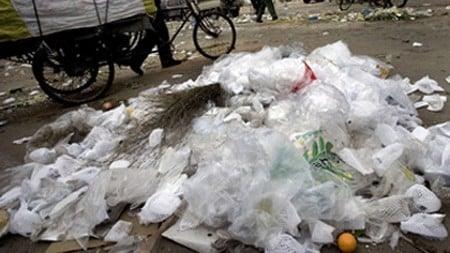Islamabad:
Pakistan generates nearly two million tonnes of plastic waste annually, of which 86% are incorrectly controlled, which damages human health and the environment, according to the World Wide Fund for Nature-Pakistan (WWF-Pakistan).
In a statement released on World Environment Day, WWF emphasized that over 1.7 million tonnes of plastic ends up at landfills, open dumps, waterways and even food systems placed Pakistan among the top 10 plastic polluting countries globally.
WWF-Pakistan noted that plastic pollution is now one of the country’s most urgent environmental challenges, which contributes significantly to the breakdown of the ecosystem, loss of biodiversity and water pollution.
Pakistan also ranks among the highest in South Asia for Plastic Management, further burden on urban waste systems and increased public health risks.
Globally, plastic has revolutionized industries because of their low cost and durability. However, the spread of disposable plastic (SUPS)-such as bottles, bags, wrappers and cutlery has a growing crisis. According to the UN environmental program, approx. 400 million tonnes of plastic waste worldwide each year, of which 36% consist of SUPS.
A 2023 study by Pakistan Environmental Protection Agency revealed that less than 10% of the country’s plastic waste was recycled. The rest contributes to landfills, ineffective waste discharge and pollution due to a lack of integrated waste management and limited investments in recycling infrastructure.
Plastic packaging, which makes up 40% of global plastic production, is especially harmful due to its non-biodegradable nature. Composed of prolonged polymers such as polyethylene and polystyrene continues these materials in the environment for centuries, polluting soil, rivers and oceans.
Studies estimate that over 14 million tonnes of plastic waste enters the world seas annually. Microplastics – small fragments that are the result of plastic depletion – are now found in seafood, drinking water and even human blood.



